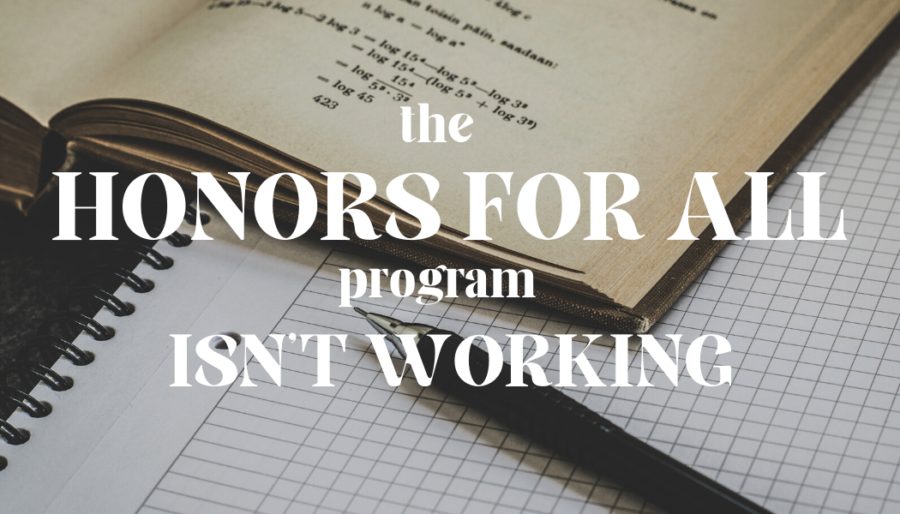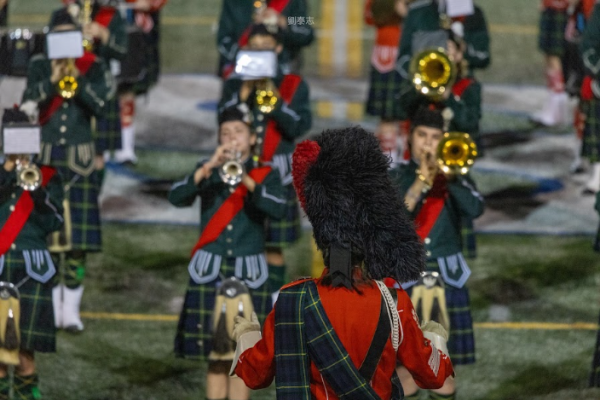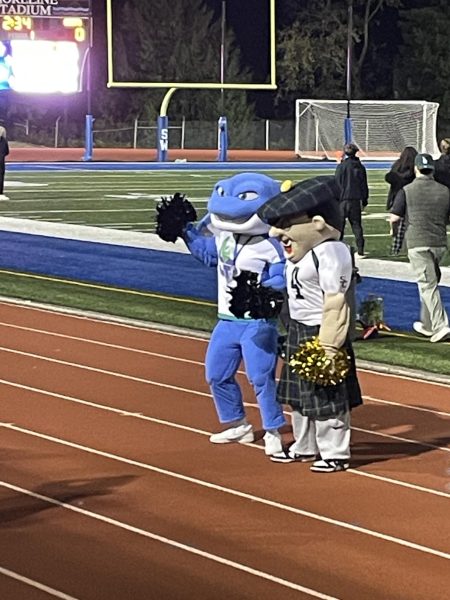The Honors for All Program Isn’t Working
If you go to Shorecrest, you’re probably familiar with the SCOTS values, and you may remember that the C stands for Challenge Yourself. This is supposed to mean that Shorecrest wants students to challenge ourselves. Well, I do. I really would love to challenge myself. But my classes don’t seem to allow me to do so. Most of them are fine, but there are two classes where I am constantly bored: Honors for All Chemistry, and Honors for All English 10.
I know there were good reasons behind switching to the Honors for All program. Principal Gonzalez told me that the goal was to improve and raise the level of instruction for all students, and to support all students so they would be prepared for the opportunity to self-select into AP and higher-level classes. “There was no research that supported the idea that segregating students into honors classes, or to separate honors and standard classes, was really best instructionally,” she said. “Separating into honors and standard classes was mostly a social construct: students self-selecting other students that they perceived to be more like them, as opposed to necessarily students who were equally advanced or otherwise.” She also said that having richer and more diverse groups of students in class together leads to better discussions, and that, especially in English classes, students can individually push as far as they want on assignments.
The Honors for All program is supposed to work by providing honors extensions for students who want to achieve an honors designation. These extensions are supposed to make students think and learn more deeply, the way they would have had they been in a separate honors class. It’s supposed to allow all students to access the honors program, whether or not they would have self-selected into an honors class had it been available.
This all sounds great in concept. But it isn’t working.
In English, I get frustrated at the superficial assignments and discussions that seem like they’re designed to produce the one answer the teacher is looking for, despite all her talk about how there are “as many different claims as people in class.” We are two months into the school year, and there have been no honors extension assignments whatsoever. There hasn’t been any indication that I am in anything other than a regular, non-honors class. In this case, by removing the separate honors classes, it really seems like they are just bringing everyone down to the level of the non-honors classes, rather than raising everyone up to the level of the honors classes.
In Chemistry, I have taken to writing poetry in the back of my lab book because I spend all of class sitting around waiting for other people to work through things that I finished very quickly, or for them to figure out a concept that I intuitively understand. Sometimes, we have entire class periods dedicated to making up work that I have already completed, leaving me with nothing to do but other classes’ homework. (I don’t think I’m the only person who has loads of free time in class, but other people quite reasonably seem not to mind. I just expect more classwork out of a class that is supposed to provide an honors-level experience.) The few honors extensions we’ve had so far seem to be mostly focused on doing more work rather than deeper work, and they also only help during the brief periods of time when they apply (like, for instance, when we’re taking a test, or at home when they’re homework assignments). They don’t help the amount of class time I spend sitting around, bored and wanting to go deeper.
(For the record, Ms. Gonzalez shares the same concern about more work not being the same as deeper work. In fact, one of the problems she mentioned with the old honors program was that it would involve more work rather than deeper work. Looks like we still haven’t fixed that.)
But, okay, I’ll be fair. We’re only two months into the school year. There’s still time. So I’ll also mention my experiences in Honors for All English 9 last year. We had exactly three honors extensions, one for each unit final (an essay, a recorded speech, and a multimedia project). They were all something to the effect of “think more deeply about this topic.” This is great! Except. It’s only deeper work. It’s not deeper teaching. And for the rest of class when we were not working on these finals, what deeper extensions were there for students who wanted a challenge? None. So instead we got to sit there and be bored.
(Okay, pause. I want to clarify that I am not mad at my teachers. My teachers were doing the best they could with the situation and resources they were given, and they did a good job. It also probably didn’t help that I didn’t advocate for myself as much as I should have. Teachers, if you’re reading this, I still like you and appreciate you. My frustration is entirely at the program in general.)
The Honors for All program does not meet the needs of students who need more academic challenge, which includes many of our students. Some of these students have been identified as highly capable students by the district and are supposed to be supported by the district hicap program. So, I went and took a look at the information about the hicap program on the school district website. To quote directly from the school district’s own guidance in the program overview document (page 5):
“All students do better when highly capable students are in heterogeneous groups.
Gifted students are often not good peer models for other students. Because learning often comes easily to these students, this can foster a fixed mindset in all students. For example, students may believe that certain students are ‘good’ at math while they are not, rather than that all students can become good at math.
Highly capable students often become classroom helpers, supporting the learning of others, while experiencing little academic growth themselves.”
This completely reflects my own experiences in Honors for All classes this year. When I talked to Ms. Gonzalez, however, she said that this practice of “siloing” students is not considered to be a best practice. Hm. Maybe there’s conflicting research. It certainly seems like a complicated issue that I can see both sides of.
That statement applies to the program as a whole, really. When I started writing this article, I thought my point was going to be that the Honors for All program is terrible and we should go back to the normal honors/non-honors program. But after talking to Ms. Gonzalez and reflecting on my experiences a bit more, I don’t think that would solve anything.
I asked her whether she thought that the program was succeeding at its goals. She said it’s really hard to tell, because it started in the 2019-20 school year, which was, of course, the same year the pandemic messed up everything. She did say that anecdotally from teachers, they’re not seeing the skill level held back on students who really want to push forward. (This obviously doesn’t line up with my experiences, but perhaps it’s true for other students and/or other classes.) She also said that she’d received some positive feedback from parents, again anecdotally, like “hey, my child has never seen themselves as a strong reader and writer, and they are, and they’re talking about themselves in a very positive way, and seeing themselves stretch and grow.”
This is all great. I’m glad that people are benefiting from the Honors for All program. And I know that some of the problems I have with the program would be problems I’d have in the honors/non-honors program too (like being assigned more work instead of deeper work, or taking up class time for other students to make up work). This is why I don’t think that the program should be abolished necessarily. I just think that it needs to be improved.
I would like to have the opportunity to deepen my learning with honors extensions that are actually extension-y. I would like to have something to do when I’m bored in class. I would like to delve deeper rather than having to do more busywork. I would like to feel like my Honors for All classes are more like honors classes than like non-honors classes.
I would like the Honors for All program to work the way it is supposed to.
I would also like more opportunities for students to share their experiences and opinions about Honors for All, as well as other school programs. When I was talking to Ms. Gonzalez, I got the sense that she was not aware that the needs of students like me were not being met by the program. If the administration doesn’t know there are problems, they can’t fix them. That’s why I’m writing this article. And that’s why I hope that perhaps they will conduct a survey, or perhaps other students will read this and take the opportunity to share their experiences.














John • Dec 13, 2021 at 9:31 am
Great article, I agree with your position 100%
If you haven’t already, look into into some of the programs as the Robinson center at the UW, including early admission
https://robinsoncenter.uw.edu/